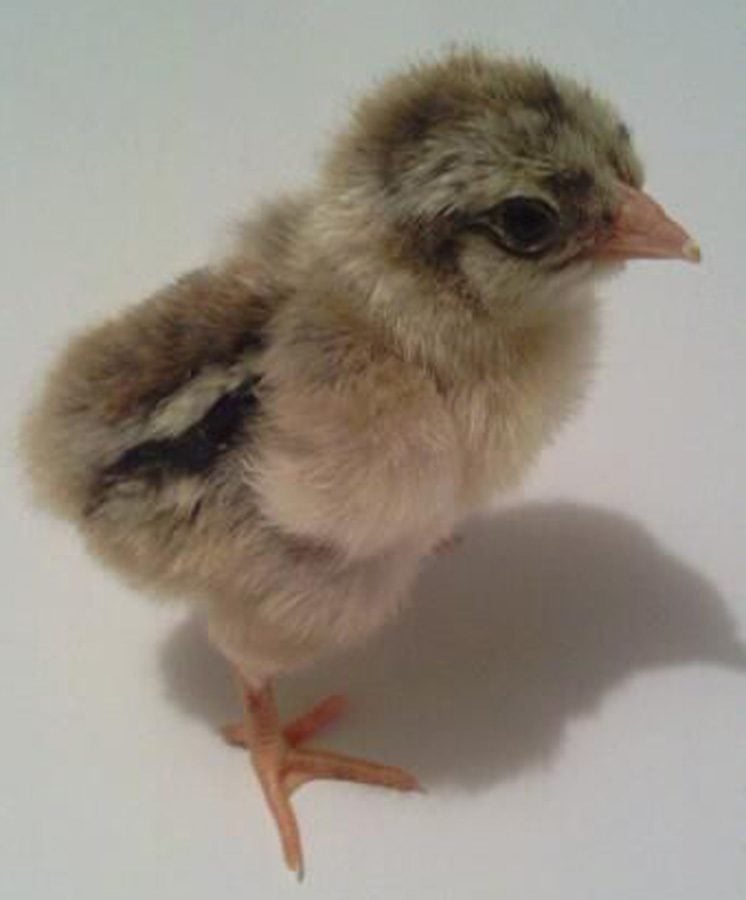- Jun 28, 2011
- 39,162
- 27,209
- 1,302
The Plymouth Rock is a very popular duel-purpose American breed, known for their excellent laying ability, general hardiness, and calm good nature which makes them a good choice for small backyard flocks and homesteaders.
Chickens called "Plymouth Rocks" were shown as early as 1849, but that flock disappeared and later strains from several different breeders combined to form the foundation of today’s Plymouth Rock breed. Mr. D.A. Upham of Worcester, MA is credited as being one of the primary influences on the breed, he first exhibited his birds at the Worcester, MA poultry exhibition in 1869. His birds are generally acknowledged to be the ancestors of the breed we know today.
A number of different breeds are reputed to have gone into the formation of the Plymouth Rock, including Dominique, Brahma, Black Java and Cochin. The breed gained a great deal of popularity quickly and the Plymouth Rock became the most popular farm chicken in the United States up until WWII.
The original color of the breed was Barred and early in the breeds history the name "Plymouth Rock" implied a barred bird. Barred varieties remain the most popular color today. As more color varieties were developed, the name Plymouth Rock became the designation for the entire breed, which can now can be found in other colors including White, Buff, Partridge, Silver Penciled, Columbian and Blue.
The Barred Plymouth Rock was one of the breeds used as the foundation for the commercial broiler industry in the united States in the 1920's and the White Rock is still often used as the female side of the Cornish Rocks or Cornish Cross type commercial broiler cross.
They are single combed, quite winter hardy, and the hens are good layers of brown eggs. They are occasionally broody and make good setters and mothers.
The Plymouth Rock breed was recognized by the APA in 1874 and is on The Livestock Conservancy's Recovering list.
Details:
Breed purpose: Duel Purpose
Comb Type: Single, medium sized.
Broodiness: Occasional, good mothers.
Climate Tolerance: Cold hardy.
Weight: Roosters 9.5 lbs, hens 7.5 lbs.
Egg Productivity: Good
Egg Size: Large
Egg Color: Brown

Barred Hen picture @cbnovick

Buff Rooster picture @desertmarcy

Silver Penciled chick picture @Silver Rock
Link to the BYC Breed reviews.
https://www.backyardchickens.com/products/plymouth-rock
Link to the General breed discussions & FAQ thread.
https://www.backyardchickens.com/t/273471/plymouth-rock-thread/0_20
Link to the Exhibition, Genetics, & Breeding to the Standard of Perfection thread.
https://www.backyardchickens.com/t/811228/the-plymouth-rock-breeders-thread/0_20
Do you own Plymouth Rocks? Are you a Plymouth Rock breeder? If so, please reply to this thread with the your thoughts and experiences, including:
· What made you decide to get this breed?
· Do you own them for fun? Breeding? Some other purpose?
· What are your favorite characteristics about this breed?
· Post some pics of your birds; male/female, chicks, eggs, etc!
We have a bunch of other awesome breed-focus threads for you to enjoy. You can see all of them here: https://www.backyardchickens.com/threads/chicken-breed-focus-project.975504/
Chickens called "Plymouth Rocks" were shown as early as 1849, but that flock disappeared and later strains from several different breeders combined to form the foundation of today’s Plymouth Rock breed. Mr. D.A. Upham of Worcester, MA is credited as being one of the primary influences on the breed, he first exhibited his birds at the Worcester, MA poultry exhibition in 1869. His birds are generally acknowledged to be the ancestors of the breed we know today.
A number of different breeds are reputed to have gone into the formation of the Plymouth Rock, including Dominique, Brahma, Black Java and Cochin. The breed gained a great deal of popularity quickly and the Plymouth Rock became the most popular farm chicken in the United States up until WWII.
The original color of the breed was Barred and early in the breeds history the name "Plymouth Rock" implied a barred bird. Barred varieties remain the most popular color today. As more color varieties were developed, the name Plymouth Rock became the designation for the entire breed, which can now can be found in other colors including White, Buff, Partridge, Silver Penciled, Columbian and Blue.
The Barred Plymouth Rock was one of the breeds used as the foundation for the commercial broiler industry in the united States in the 1920's and the White Rock is still often used as the female side of the Cornish Rocks or Cornish Cross type commercial broiler cross.
They are single combed, quite winter hardy, and the hens are good layers of brown eggs. They are occasionally broody and make good setters and mothers.
The Plymouth Rock breed was recognized by the APA in 1874 and is on The Livestock Conservancy's Recovering list.
Details:
Breed purpose: Duel Purpose
Comb Type: Single, medium sized.
Broodiness: Occasional, good mothers.
Climate Tolerance: Cold hardy.
Weight: Roosters 9.5 lbs, hens 7.5 lbs.
Egg Productivity: Good
Egg Size: Large
Egg Color: Brown
Barred Hen picture @cbnovick
Buff Rooster picture @desertmarcy
Silver Penciled chick picture @Silver Rock
Link to the BYC Breed reviews.
https://www.backyardchickens.com/products/plymouth-rock
Link to the General breed discussions & FAQ thread.
https://www.backyardchickens.com/t/273471/plymouth-rock-thread/0_20
Link to the Exhibition, Genetics, & Breeding to the Standard of Perfection thread.
https://www.backyardchickens.com/t/811228/the-plymouth-rock-breeders-thread/0_20
Do you own Plymouth Rocks? Are you a Plymouth Rock breeder? If so, please reply to this thread with the your thoughts and experiences, including:
· What made you decide to get this breed?
· Do you own them for fun? Breeding? Some other purpose?
· What are your favorite characteristics about this breed?
· Post some pics of your birds; male/female, chicks, eggs, etc!
We have a bunch of other awesome breed-focus threads for you to enjoy. You can see all of them here: https://www.backyardchickens.com/threads/chicken-breed-focus-project.975504/
Last edited by a moderator:





 Breeding? Yes Some other purpose?
Breeding? Yes Some other purpose?